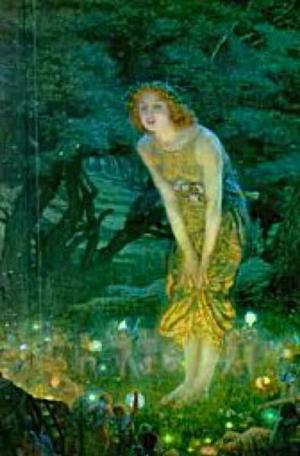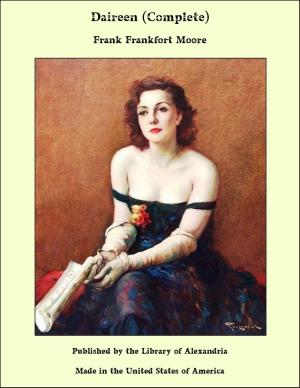| Author: | Sir Leslie Stephen | ISBN: | 9781465534590 |
| Publisher: | Library of Alexandria | Publication: | March 8, 2015 |
| Imprint: | Language: | English |
| Author: | Sir Leslie Stephen |
| ISBN: | 9781465534590 |
| Publisher: | Library of Alexandria |
| Publication: | March 8, 2015 |
| Imprint: | |
| Language: | English |
CHILDHOOD AND EARLY LIFE. The disease had scarred and disfigured features Otherwise regular and always impressive. It had seriously injured his eyes, entirely destroying, it seems, the sight of one. He could not, it is said, distinguish a friend's face half a yard off, and pictures were to him meaningless patches, in which he could never see the resemblance to their objects. The statement is perhaps exaggerated; for he could see enough to condemn a portrait of himself. He expressed some annoyance when Reynolds had painted him with a pen held close to his eye; and protested that he would not be handed down to posterity as "blinking Sam." It seems that habits of minute attention atoned in some degree for this natural defect. Boswell tells us how Johnson once corrected him as to the precise shape of a mountain; and Mrs. Thrale says that he was a close and exacting critic of ladies' dress, even to the accidental position of a riband. He could even lay down aesthetical canons upon such matters. He reproved her for wearing a dark dress as unsuitable to a "little creature." "What," he asked, "have not all insects gay colours?" His insensibility to music was even more pronounced than his dulness of sight. On hearing it said, in praise of a musical performance, that it was in any case difficult, his feeling comment was, "I wish it had been impossible!" The queer convulsions by which he amazed all beholders were probably connected with his disease, though he and Reynolds ascribed them simply to habit. When entering a doorway with his blind companion, Miss Williams, he would suddenly desert her on the step in order to "whirl and twist about" in strange gesticulations. The performance partook of the nature of a superstitious ceremonial. He would stop in a street or the middle of a room to go through it correctly. Once he collected a laughing mob in Twickenham meadows by his antics; his hands imitating the motions of a jockey riding at full speed and his feet twisting in and out to make heels and toes touch alternately. He presently sat down and took out a Grotius De Veritate, over which he "seesawed" so violently that the mob ran back to see what was the matter. Once in such a fit he suddenly twisted off the shoe of a lady who sat by him. Sometimes he seemed to be obeying some hidden impulse, which commanded him to touch every post in a street or tread on the centre of every paving-stone, and would return if his task had not been accurately performed. In spite of such oddities, he was not only possessed of physical power corresponding to his great height and massive stature, but was something of a proficient at athletic exercises. He was conversant with the theory, at least, of boxing; a knowledge probably acquired from an uncle who kept the ring at Smithfield for a year, and was never beaten in boxing or wrestling. His constitutional fearlessness would have made him a formidable antagonist. Hawkins describes the oak staff, six feet in length and increasing from one to three inches in diameter, which lay ready to his hand when he expected an attack from Macpherson of Ossian celebrity. Once he is said to have taken up a chair at the theatre upon which a man had seated himself during his temporary absence, and to have tossed it and its occupant bodily into the pit. He would swim into pools said to be dangerous, beat huge dogs into peace, climb trees, and even run races and jump gates. Once at least he went out foxhunting, and though he despised the amusement, was deeply touched by the complimentary assertion that he rode as well as the most illiterate fellow in England. Perhaps the most whimsical of his performances was when, in his fifty-fifth year, he went to the top of a high hill with his friend Langton. "I have not had a roll for a long time," said the great lexicographer suddenly, and, after deliberately emptying his pockets, he laid himself parallel to the edge of the hill, and descended, turning over and over till he came to the bottom. We may believe, as Mrs. Thrale remarks upon his jumping over a stool to show that he was not tired by his hunting, that his performances in this kind were so strange and uncouth that a fear for the safety of his bones quenched the spectator's tendency to laugh
CHILDHOOD AND EARLY LIFE. The disease had scarred and disfigured features Otherwise regular and always impressive. It had seriously injured his eyes, entirely destroying, it seems, the sight of one. He could not, it is said, distinguish a friend's face half a yard off, and pictures were to him meaningless patches, in which he could never see the resemblance to their objects. The statement is perhaps exaggerated; for he could see enough to condemn a portrait of himself. He expressed some annoyance when Reynolds had painted him with a pen held close to his eye; and protested that he would not be handed down to posterity as "blinking Sam." It seems that habits of minute attention atoned in some degree for this natural defect. Boswell tells us how Johnson once corrected him as to the precise shape of a mountain; and Mrs. Thrale says that he was a close and exacting critic of ladies' dress, even to the accidental position of a riband. He could even lay down aesthetical canons upon such matters. He reproved her for wearing a dark dress as unsuitable to a "little creature." "What," he asked, "have not all insects gay colours?" His insensibility to music was even more pronounced than his dulness of sight. On hearing it said, in praise of a musical performance, that it was in any case difficult, his feeling comment was, "I wish it had been impossible!" The queer convulsions by which he amazed all beholders were probably connected with his disease, though he and Reynolds ascribed them simply to habit. When entering a doorway with his blind companion, Miss Williams, he would suddenly desert her on the step in order to "whirl and twist about" in strange gesticulations. The performance partook of the nature of a superstitious ceremonial. He would stop in a street or the middle of a room to go through it correctly. Once he collected a laughing mob in Twickenham meadows by his antics; his hands imitating the motions of a jockey riding at full speed and his feet twisting in and out to make heels and toes touch alternately. He presently sat down and took out a Grotius De Veritate, over which he "seesawed" so violently that the mob ran back to see what was the matter. Once in such a fit he suddenly twisted off the shoe of a lady who sat by him. Sometimes he seemed to be obeying some hidden impulse, which commanded him to touch every post in a street or tread on the centre of every paving-stone, and would return if his task had not been accurately performed. In spite of such oddities, he was not only possessed of physical power corresponding to his great height and massive stature, but was something of a proficient at athletic exercises. He was conversant with the theory, at least, of boxing; a knowledge probably acquired from an uncle who kept the ring at Smithfield for a year, and was never beaten in boxing or wrestling. His constitutional fearlessness would have made him a formidable antagonist. Hawkins describes the oak staff, six feet in length and increasing from one to three inches in diameter, which lay ready to his hand when he expected an attack from Macpherson of Ossian celebrity. Once he is said to have taken up a chair at the theatre upon which a man had seated himself during his temporary absence, and to have tossed it and its occupant bodily into the pit. He would swim into pools said to be dangerous, beat huge dogs into peace, climb trees, and even run races and jump gates. Once at least he went out foxhunting, and though he despised the amusement, was deeply touched by the complimentary assertion that he rode as well as the most illiterate fellow in England. Perhaps the most whimsical of his performances was when, in his fifty-fifth year, he went to the top of a high hill with his friend Langton. "I have not had a roll for a long time," said the great lexicographer suddenly, and, after deliberately emptying his pockets, he laid himself parallel to the edge of the hill, and descended, turning over and over till he came to the bottom. We may believe, as Mrs. Thrale remarks upon his jumping over a stool to show that he was not tired by his hunting, that his performances in this kind were so strange and uncouth that a fear for the safety of his bones quenched the spectator's tendency to laugh















